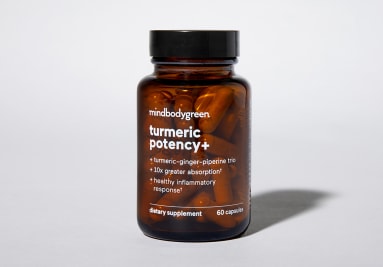Study Finds Running Actually Doesn't Mess With Joints Like We Thought
Despite what you may have heard.

Image by Ivan Gener / Stocksy March 23, 2023 Whether you deal with joint pain or you're worried about your risk for developing arthritis, you might think running is too much on your knees, hips, or ankles. But if you're missing your weekly runs for the sake of your joints, you might want to think again, according to a new study presented at the American Academy of Orthopedic Surgeons' annual meeting. Here's what they found.
Advertisement
This ad is displayed using third party content and we do not control its accessibility features.
Does running increase your risk for arthritis?
For this study, researchers wanted to dig into whether running actually does increase arthritis risk, so they looked at nearly 4,000 marathon runners and the prevalence of arthritis (making it the largest survey of marathon runners ever).
As lead study author Matthew Hartwell M.D. notes in a news release, "There is a continued dogma among the healthcare community that patients should stop running to avoid wearing out their cartilage,” adding that their research shows one in four people are told by a doctor to run less, and further, nearly half of runners were told to stop entirely.
But based on their findings, you have some good news, runners. Participants did not have an increased risk for arthritis, even with the average participant running for almost 15 years and completing marathons.
Whether it was factors like how long they'd been running, how many marathons they'd completed, their weekly mileage, or their pace, nothing was linked with higher arthritis rates. Factors like increase in age, BMI, a family history of hip or knee arthritis, and injuries or knee surgery, however, do increase your risk, Hartwell adds.
Advertisement
This ad is displayed using third party content and we do not control its accessibility features.
How to prevent injuries.
While it is definitely good news that running doesn't increase arthritis risk, that doesn't mean it's always the easiest workout for your joints. But mitigating joint pain from high impact exercises often comes down to things like knowing your limits, proper recovery, supportive footwear, and good form.
As doctor of physical therapy Robert Gillanders, P.T., DPT previously told mindbodygreen, talking with physical therapists and even running coaches or trainers can help you understand how to modify your running routine to fit your needs. He adds that slowly upping your speed or distance, as well as proper recovery and switching up your workout routine, can also help.
And if you want to take your recovery to the next level and help your joints at the same time, finding a quality turmeric supplement with research-backed ingredients for optimal absorption can help your body maintain a healthy inflammatory response.
Be sure to check out our guide to common running injuries and how to treat them for more helpful info.
The takeaway.
Running is a great way to move your body and clear your mind, so if you've been skipping it to prevent arthritis, this research says it might just be time to lace up those sneakers.

 Tekef
Tekef 

































